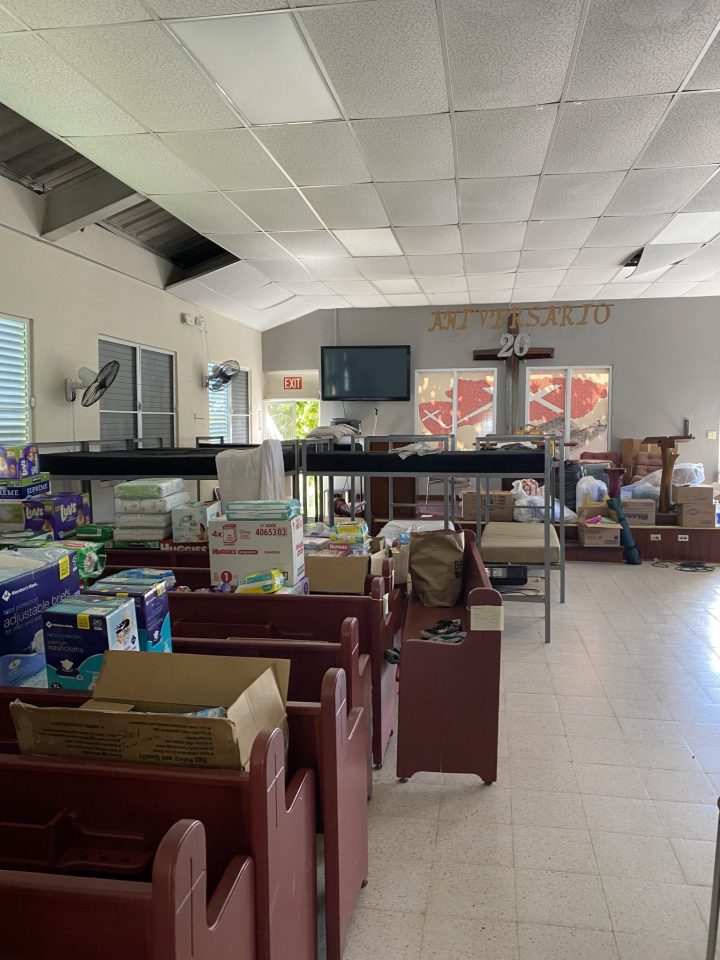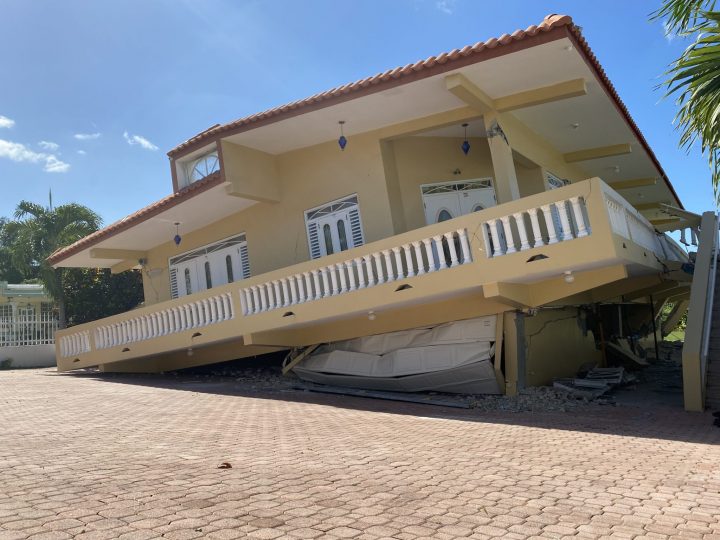By José Rabelo translated to English by Jhon Sánchez
I’ve been afraid of earthquakes since I was a child. The news images of earthquakes in Venezuela, China, Nicaragua, Chile, and Mexico, among so many affected countries, were traumatic, in a way, for my mind in formation. Over time, these scenes were woven into my memory to emerge later as nightmares. On Tuesday, January 7, 2020, I did not wake up from a bad dream, but reality had dragged me out of bed.
A 6.4 magnitude earthquake with an epicenter in the southwest of Puerto Rico was the cause of the jolt felt throughout the island. This time, the images did not come from distant nations. They came from my land, and the protagonists were my Puerto Rican brothers.
We joined in the relief efforts to find the vast majority of people staying in cars, huts, in hammocks outdoors in their backyards, in parks, or on athletic tracks. They took shelter under the night sky, where the constellation of Orion did not represent the Three Kings of the East, but some additional lights from their new roof.
Talking to people in the region, I am surprised because they do not want to sleep in their houses. They talk about nights of tension and terror where the groans of the earth wake them up. “It’s a buzzing, like a speeding car under the earth approaching to destroy,” repeat the refugees of the La Luna de Guánica camp. “I feel safer outside. I don’t trust my house,” is the testimony of one of the occupants of Camp Rancho 13 in Yauco.
In the neighborhood Consejo of Guayanilla, Pastor Kevin León, Disciples of Christ Church, tells us that he has placed beds inside the church. Still, at nightfall, the parishioners take out the mattresses to sleep outside.
Those affected have lost faith in their homes, where they used to find safety. With so much destruction in their neighborhoods, I find this response to be a welcome one. Meanwhile, elsewhere many homes have remained standing, but the emotional stability of their inhabitants has crumbled.
In one of the local news programs, they interviewed an eight-year-old boy who was taking refuge in Francisco Montaner Park in Ponce. His words were the following: “It’s perfect here because if something falls, it won’t crush us.”
Groups of doctors and psychologists have visited communities to provide support. Patients’ mayor concern is to ask for someone to talk about their feelings.
As the frequency and intensity of the aftershocks decrease, our authorities will have to rethink how to help our people not only with food, housing, or medicine. Puerto Ricans need psychological support to create a new basis for the future, especially for children who live in fear of experiencing a similar event.
Photo: In the Tent City of Guayanilla, a Girl rides her bicycle that she was able to enjoy only on January 20th, despite having received it on January 6, Three King’s Day.
Photos by José Rabelo

Children’s shoes in a playground in Tent City (Ciudad de las Carpas) in Guayanilla, Puerto Rico.

Beds and supplies inside the Disciples of Christ Church. The parishioners take the mattresses outside during the night.

One of the many collapsed houses in the town of Guayanilla, Puerto Rico

Refugee Camp at Francisco Montaner Baseball Park in Ponce, Puerto Rico

Camp La Luna in Guánica, Puerto Rico

A family spends the night in this school bus at Camp La Piedad in Barrio Barina in Yauco, Puerto Rico.

Catholic Church of Guayanilla, Puerto Rico

Catholic Church of Guayanilla, Puerto Rico
José A. Rabelo is a fiction writer and medical doctor who lives in Puerto Rico










